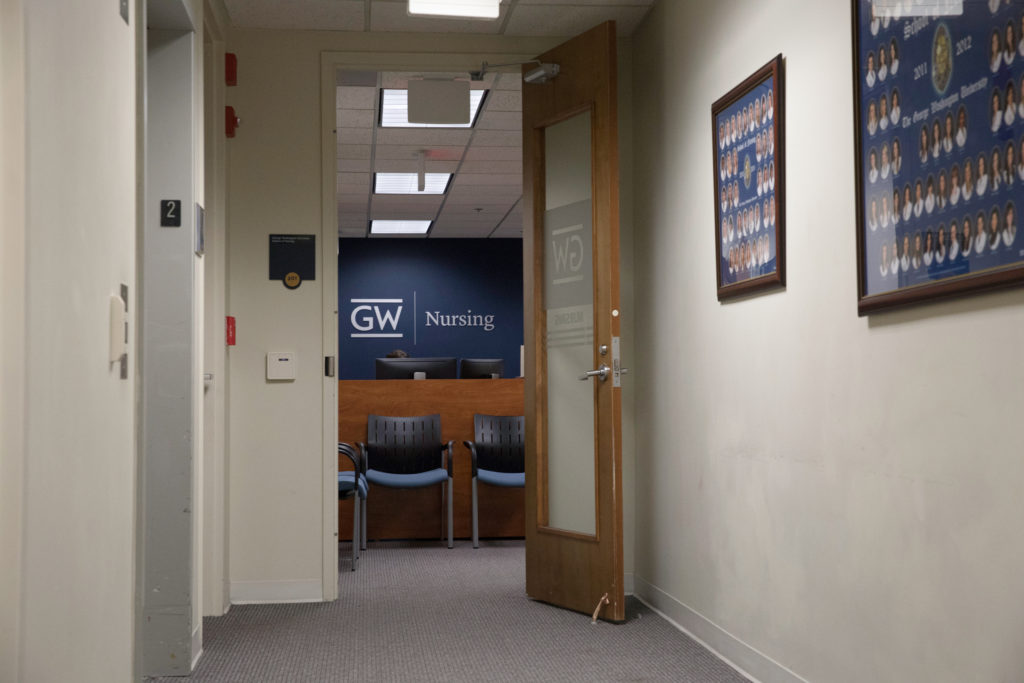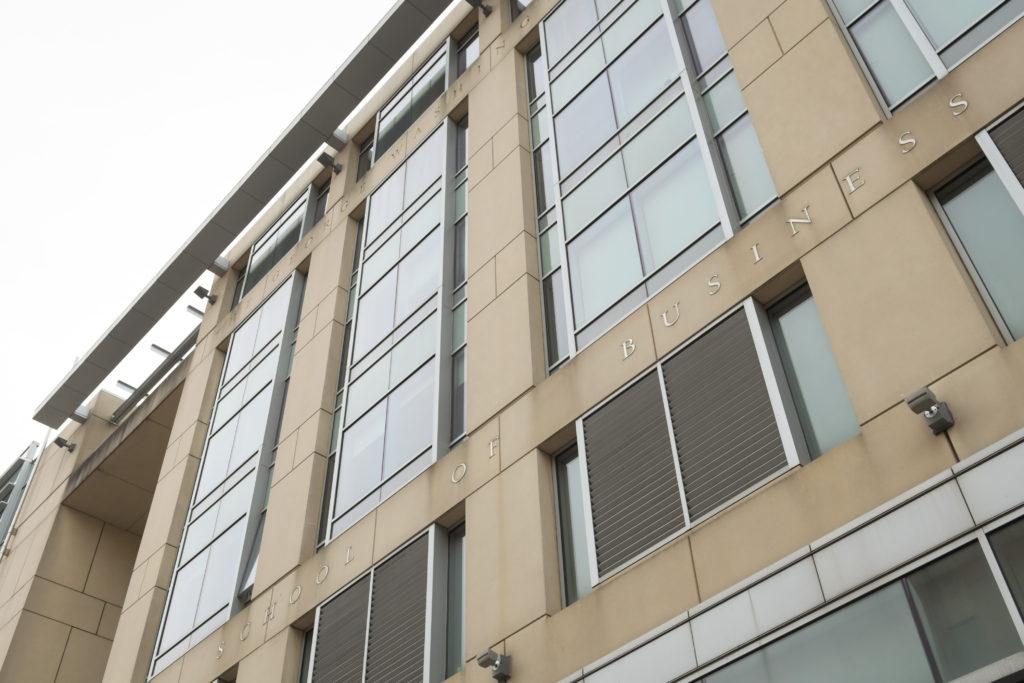One year after rolling out a program designed to train faculty on how to facilitate nursing simulations, School of Nursing officials plan to expand the program with new courses for faculty.
Nursing school officials launched the Nursing Simulation Initiative last March to improve faculty members’ simulation training and clinical education skills through the use of mannequins and live patient actors. Nursing school Dean Pamela Jeffries said the school will continue to improve its existing simulation programs and add new courses to ensure nursing students receive clinical education they can apply to their future careers.
“Concerns have emerged that simulation is being used without adequate faculty development, business plans or administrative support,” Jeffries said in an email. “Answering the call, the GW Nursing Simulation Initiative offers courses to meet the need.”
She said officials who oversee the initiative will maintain current course offerings, add new nursing topics to the curriculum, develop online course features and offer “travel” versions of the program around the country and the world. Jeffries did not specify which courses officials will add to the program.
“Investing in clinical simulations and preparing the next generation of learners to provide high quality, safe care is a high priority at GW School of Nursing as demonstrated through our resources, innovation and faculty prepared to use simulations fostering immersive experiential learning,” she said.
Sabrina Beroz, the nursing school’s associate director for programs and initiatives, said the program has offered courses like Best Practices in Teaching Simulation and Learning Pedagogy that bolster nursing faculty members’ simulation training and curriculum-building skills. She referenced a faculty member from Muhimbili University in Tanzania who attended the nursing school’s courses and developed a simulation education program for faculty at his own university as an example of the program’s success.
Beroz said she has received several emails from nursing faculty in past weeks stating that the simulation training programs have helped them “deliver best practices” in high-quality courses despite teaching online.
Officials announced that classes would move online for the remainder of the semester last month amid concerns over COVID-19.
“We thought we had all summer to get this up and running, not just 1.5 weeks!” one of the emails Beroz received states. “Talk about the learning curve! I am so thankful for what we learned in class.”
Crystel Farina, the director of simulation and experiential learning, said strengthening faculty members’ simulation skills enhances students’ clinical education. She said the school’s programs teach faculty how to point out errors students make in the simulation, which helps future nurses identify and learn from their missteps.
“Simulation is a place where students can make mistakes and learn in a safe environment, further enhancing patient safety when later caring for real patients,” Farina said in an email.
Cassidy Wooldridge, an accelerated BSN student, said she participated in simulation activities like learning how to make patients’ beds and how to place a nasogastric tube – which carries food and medicine to the stomach through the nose – in a patient without causing them pain. She said the class is a requirement for students, as they need to pass competency tests in nursing care practice to learn more advanced skills.
Wooldridge said using simulation under the instruction of nursing professors helped her master patient care skills because she could make mistakes in a safe environment without patients. She said instructors helped her point out errors in her patient care practice, like improperly inserting medical devices into patients without harming a real person.
“You’re basically forced to learn the skills and then practice, practice, practice until you’re able to do it so that you can carry on and go to medicals where you do more complex things in the lab setting,” Woolridge said.
Lily Meehan, a recent graduate of the nursing school, said the program gave her patient care experience, which made her confident in the skills she uses as a practicing nurse.
“I would be remiss if I didn’t say that it was helpful,” Meehan said. “It was something else to be able to practice on a ‘person’ where I felt safe that I knew I wasn’t going to hurt them if I messed up because I knew that if I made that mistake in person that would not be OK.”





